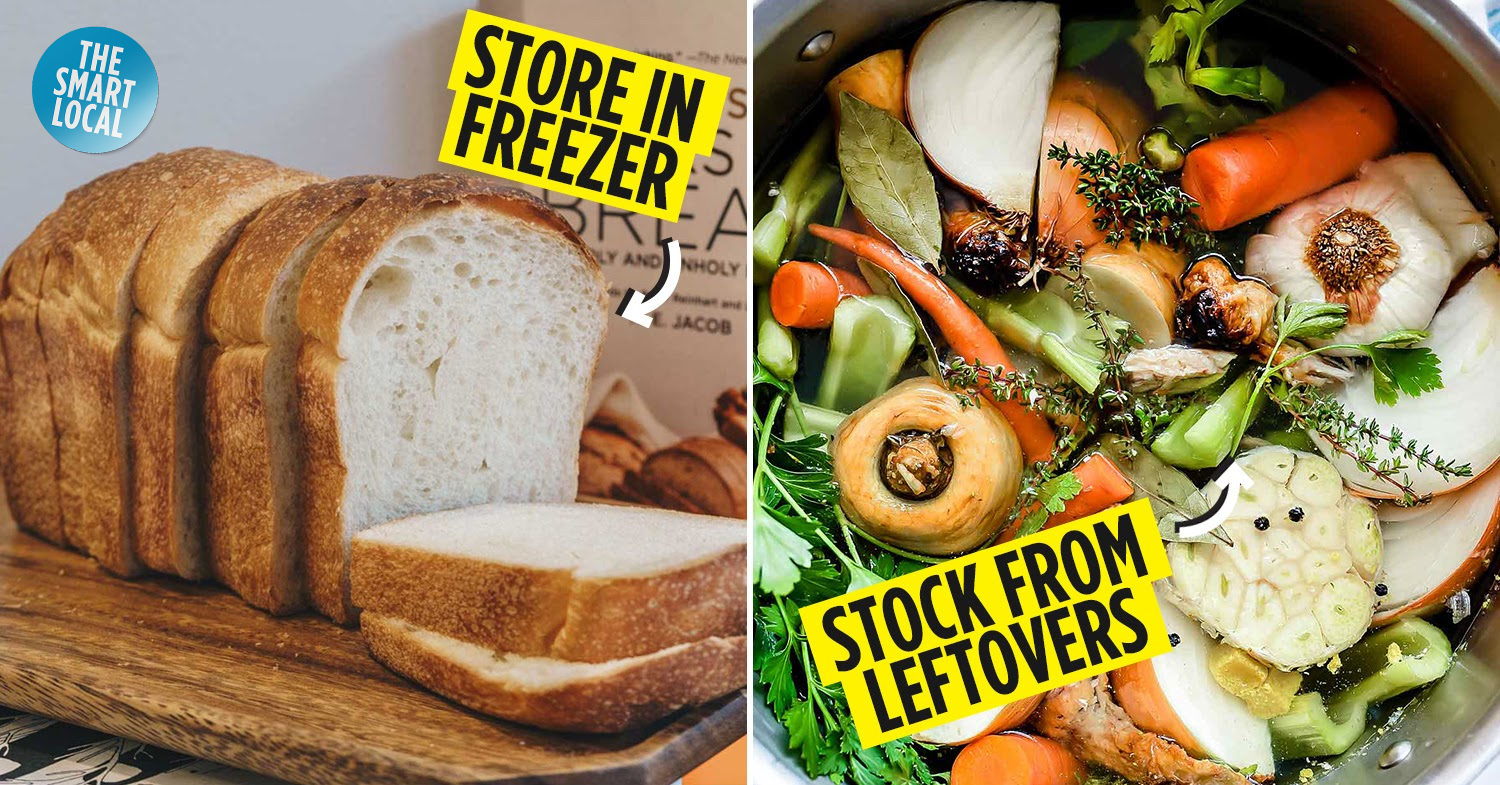Reducing food waste
We’re all familiar with this scenario: leaving the supermarket with bags of “just-in-case” food items only to find them emitting nasty odours in our fridge after two weeks. It’s easy to give in to aggressive supermarket promos and purchase more items than we need, not realising that they actually make reducing food waste more challenging.
To nip this bad habit in the bud, here are seven practical tips to help you be more efficient with your grocery hauls.
1. Use grocery list apps and buy only what you need
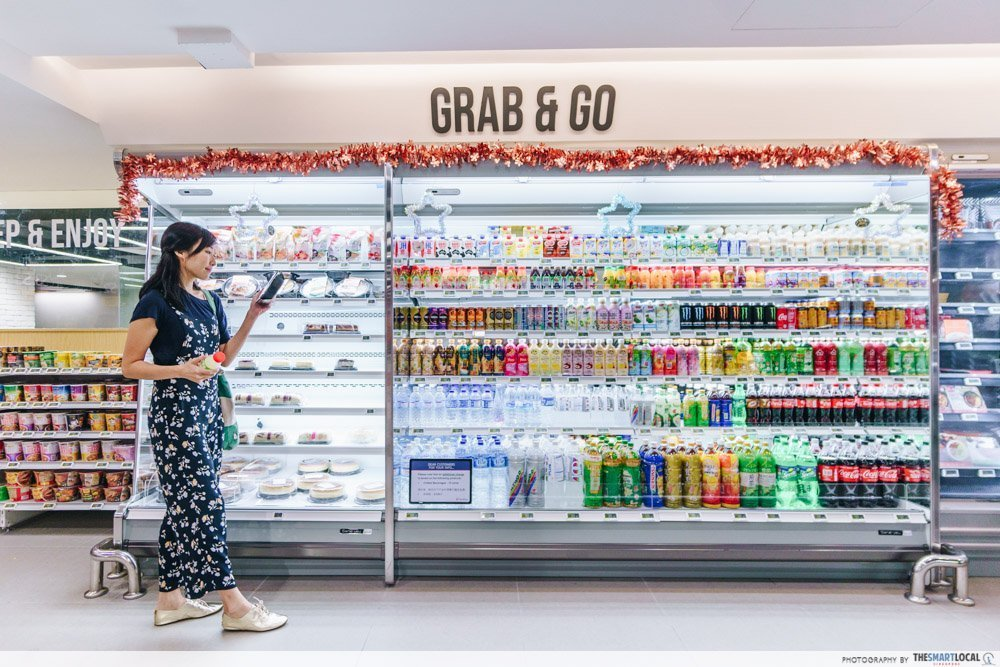
Coming up with a grocery list before your next grocery run will not just save you time and money, but avoid food wastage as well. An organised plan to conquer the supermarket aisles will keep you focused on getting the exact items you need without being distracted by “Buy-1-Get-1-Free” promos.
Grocery list apps like AnyList (AnyList app on iOS | AnyList app on Android) gives you greater convenience by letting you key in and strike out items on your phone. AnyList, in particular, allows you to share your grocery list with others if they’re helping you with your purchase.
Alternatively, the SP Utilities app has a carbon footprint calculator that allows users to find out the carbon emissions associated with different food categories, which helps make purchasing decisions to reduce carbon footprint more efficient.
2. Separate food that produces ethylene gas
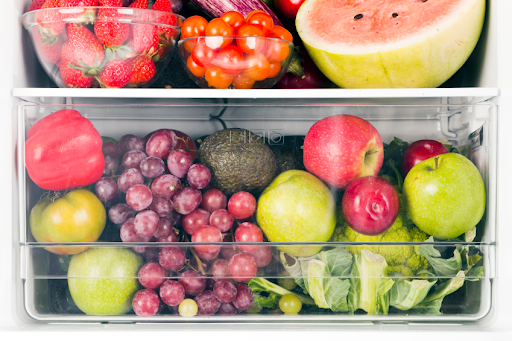
Image credit: Immediate Appliance
Ever wondered why your bananas become overripe within a day? It might be because you’ve been storing them wrongly. When you store fruits that are ethylene producers such as apples next to ethylene-sensitive ones like bananas, it triggers the latter to ripen much quicker than it naturally would – resulting in having to throw them out sooner.
Ethylene gas is a plant hormone released naturally from fruits and vegetables that accelerates ripening. To increase the shelf life of ethylene-sensitive produce such as onions, keep them separate from ethylene producers like potatoes. Here are some examples of ethylene-sensitive produce and ethylene producers:
Ethylene-sensitive:
- Cabbage
- Cucumber
- Eggplants
- Raspberries
- Spinach
- Sweet potatoes
- Watermelon
- Strawberries
Ethylene producers:
- Apples
- Ripe banana
- Blueberries
- Potatoes
- Tomatoes
- Grapes
- mangoes
As a general guide, it’s best to keep ethylene producers in the fridge and sensitive produce in a dry area.
Pro tip: Avocado takes longer to ripen compared to other fruits. To speed up the process, store them next to ethylene producers, and you’ll have a soft and ripe avocado for your homemade brunch in no time.
3. Make homemade stock out of vegetable scraps and meat bones
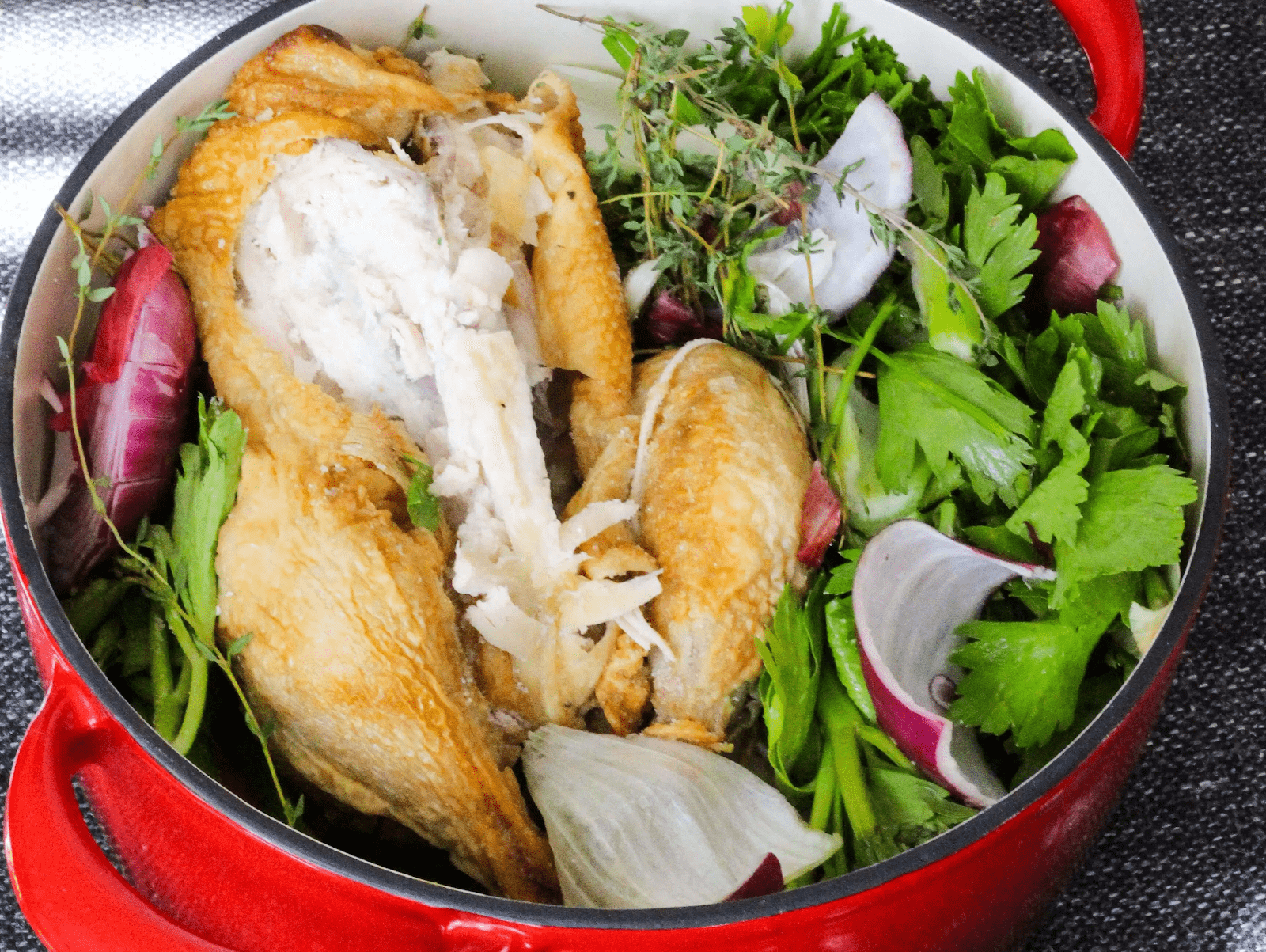
Image credit: Ally’s Cooking
While whipping up a storm in your kitchen, you’ll probably end up with leftover meat bones or scraps of vegetables like parsley stems or the ends of carrots. Instead of throwing them away, collect these bits to make homemade stock.
All you need to do is boil them in water and season to taste – check out these online recipes as a guide. You can even store these parts in the freezer to use in future for other recipes like dumplings and noodle soup.
4. Turn leftovers into compost for plants to reduce food waste
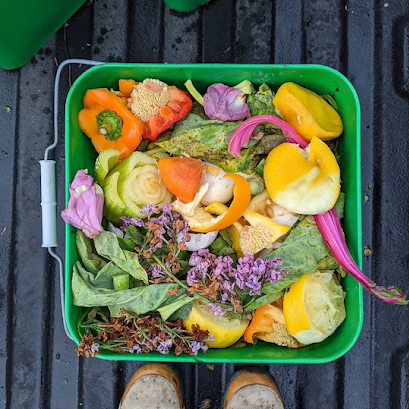
Image credit: @communitycomposting
Instead of discarding food waste, consider composting. Given that most of us live in HDB flats, the first concern that may arise would be the smell that it emits which irritates our neighbours. However, it won’t be a major concern if you apply specific methods of composting like vermicomposting and bokashi.
As a rule of thumb, avoid adding animal-based food scraps like meat and dairy into your compost to prevent nasty odours. Instead, include vegetable offcuts like carrot heads for more nutrients. For budding plant enthusiasts, this will be an area of interest in your sustainable gardening journey!
5. Understand expiration dates – “best before” VS “use by”
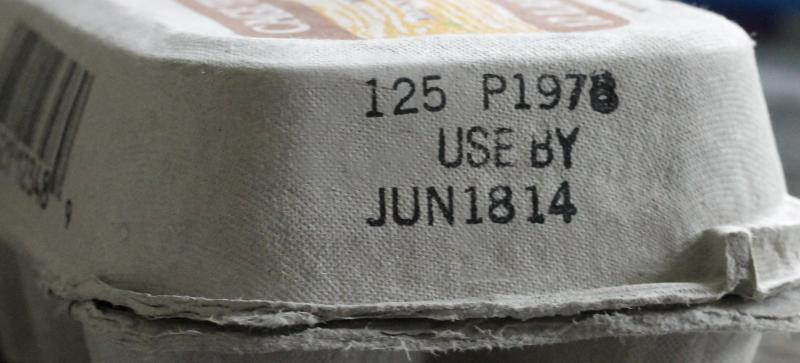
Image credit: FDA Law Blog
The moment our food expires, not many of us take a second look before tossing it in the bin. But knowing the difference between “best before” and “use by” labels actually helps to prevent unnecessary food waste.
“Use by” means that you should only consume the food before the date printed on the packaging as eating it after can cause food safety and health issues. Most “use by” labels are found on food items like frozen meat and sushi – so if you’ve kept that supermarket-bought sashimi in your fridge for over a day, please throw it away.
“Best before” means that the food can still be consumed, but it may have lost flavour and texture after the date printed on the packaging. This explains why your chips and biscuits might become laohong after the stated date, despite still being edible.
Most dried, frozen and canned food have this label on it – so if it’s a day past its “best before” date, you can taste it before deciding to throw it out.
6. Make DIY food masks to reduce food waste

Image credit: @wanderlust_in_asia
We usually only realise that we’ve over-bought groceries when the shelf life of our food is about to expire. Among the several things that you can do with expiring food, beauty junkies can take comfort in DIY-ing hair and face masks.
Expiring fruits like bananas and vegetables like cucumbers are jam-packed with antioxidants and vitamins that are not only good for your body when ingested, it’s also good for your face when applied externally. Simply follow these face mask recipes and experiment with making your own concoction – you’ll save money on skincare too!
7. Store dry food in your fridge and freezer to extend their shelf life
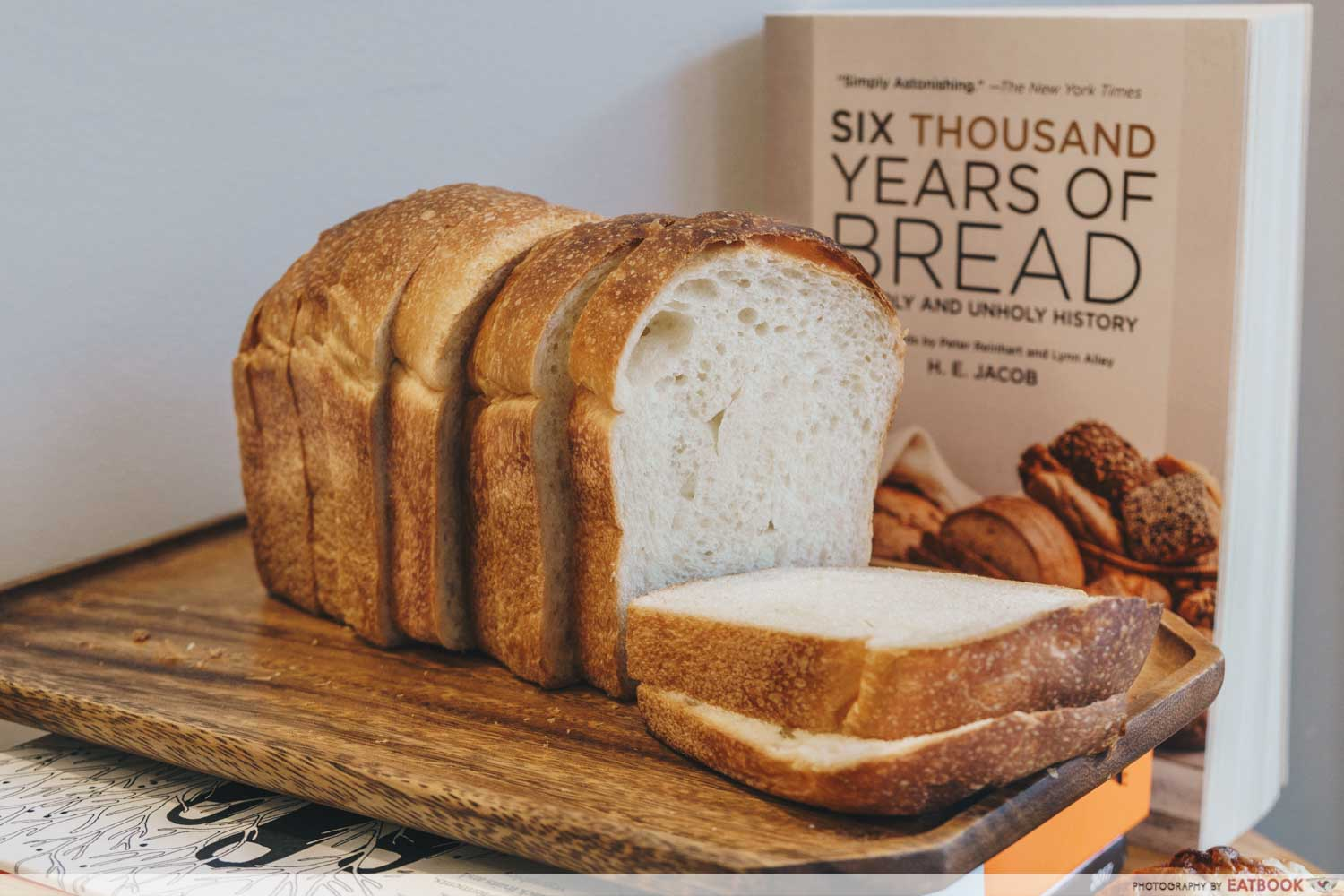
Image credit: Eatbook
When helping your mum unload her grocery bags at home, you’d roughly know what goes where – dry food stays out of the fridge, and fresh produce goes straight into the freezer. But here’s a couple of dry products that you can also keep in your fridge or freezer to extend their shelf life.
Storing your loaf of bread in the freezer can actually help to retain its freshness for up to six months. All you need to do is thaw it in the fridge before popping it in the toaster when you feel like having a warm slice of bread.
To prevent your nuts and potato chips from becoming laohong, you can also store them in the fridge to retain their crunch. Storing your nuts in the fridge can even make them last a year! Additionally, keeping flour in the freezer also ensures that it remains usable for up to two years.
Tips for reducing food waste and carbon footprint
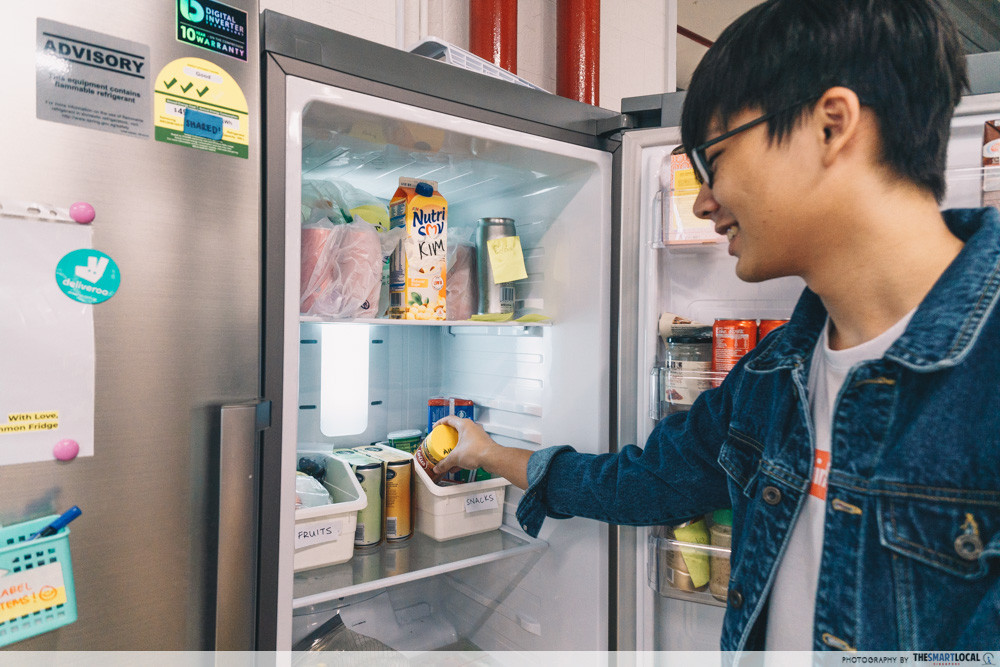
Many of us assume that taking steps to reducing food waste and our carbon footprint means purchasing more environmentally-friendly goods. But change can start from your habits at home.
These tips prove that caring for our environment can be part of our everyday life and help us save money as well.
Calculate your carbon emissions with the SP Utilities app
Doing our part to save the environment doesn’t necessarily require Greta Thunberg-esque levels of effort – starting small by simply calculating our carbon footprint can be a step in the right direction.

With the SP Utilities app, you’ll be able to find out your carbon footprint for Utility, Waste, Food, Spending, Commute and Travels using the calculator on the app (SP Utilities on iOS | SP Utilities on Android). This calculator is also available on the SP Group website.
By entering the food items that make up your diet, the app estimates the size of your carbon footprint annually. Being able to see the results clearly in a chart might be just what you need to kickstart a lifestyle change in your food-purchasing and dietary habits.
While using tupperware to dabao cai fan and metal straws for bubble tea are environmentally-positive actions, taking note of our carbon footprint and making intentional changes in our lifestyle will definitely help “level up” our tree-hugger instincts.
Keep track of your carbon footprint with SP Utilities here
This post was brought to you by SP Group.
Cover image credit: Eatbook, Foodie Crush
